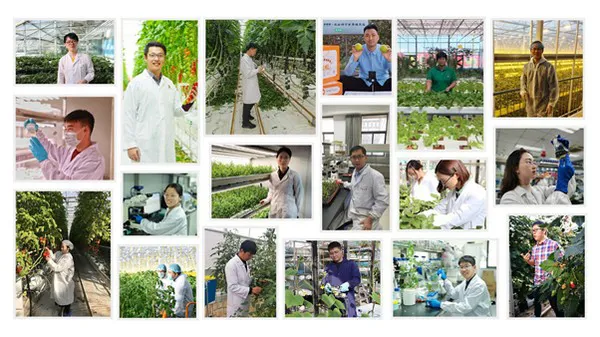For Zheng Jianfeng, a 29-year-old researcher at China Agricultural University, participating in Pinduoduo’s inaugural Smart Agriculture Competition was a valuable experience as it provided him with a valuable opportunity to put theory to practice.

Zheng was part of a team comprising researchers with different backgrounds in science and technology. Along with other technology teams, they competed against traditional growers with decades of experience to see who could grow better strawberries. The technology teams emerged as clear winners, producing 196% more strawberries by weight on average while taking commercial viability into consideration.
“Through our participation in the Smart Agriculture Competition, our team proved that smart farming techniques can effectively improve production efficiency,” said Zheng, who was born into a family of farmers in central China. “We are committed to bringing more smart technologies into every aspect of agricultural value chain.”
Zheng’s experience mirrors that of Xu Dan, head of a Beijing-based greenhouse horticultural start-up who is taking part in the current edition of the annual Smart Agriculture Competition. The two agricultural scientists shared their experiences in a webinar jointly held by Pinduoduo and the Food and Agriculture Organization of the United Nations to discuss the adoption of digital technology for agriculture in China.
Xu’s team, made up mostly of current and former students from Wageningen University & Research, is working on a model it calls “human-machine fusion intelligence” that combines extensive cultivation experience with advanced computing.
“The advantage of the machine lies in storing and retrieving information quickly, while the advantage of the human brain lies in reasoning, analysis, and induction,” said Xu. “We believe the combination of human and machine is the best model for the current digital agriculture in China.”
With about 80% of participants in their 20s, the Smart Agriculture Competition has become a platform where young talented agricultural researchers can work on real-life “pain points” faced by smallholder farmers.
Taking a design thinking approach, the researchers develop an understanding of the people for whom the technology is being developed for. Several teams have since commercialized their technology and are helping smallholder farms to improve their agricultural productivity.
“Knowledge sharing is a key component of the adoption and proliferation of technology,” said Andre Zhu, Senior Vice President of Pinduoduo. “By organizing such sharing sessions, we want to help promote smart agriculture and its benefits and generate more interest in this very important sector of society.”
Since its founding in 2015, Pinduoduo has made improving the food and agricultural systems a key strategic priority. The company is a firm supporter of precision agriculture through the annual Smart Agriculture Competition, which it organizes jointly with China Agricultural University and Zhejiang University with technical guidance from the FAO and Wageningen University & Research.
